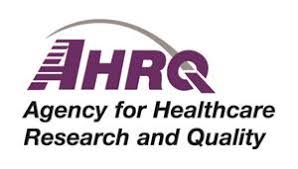 On June 21, AACIPM submitted a collective response to AHRQ during the comment period for their systematic review related to integrated pain management programs.
On June 21, AACIPM submitted a collective response to AHRQ during the comment period for their systematic review related to integrated pain management programs.
As you may recall, AHRQ posted the proposed research protocol for Integrated Pain Management Programs during the week of Thanksgiving 2020. After group discussions and a writing group assembled quickly, AACIPM submitted a collective response to AHRQ in December 2020 within a matter of days.
This time around, just as we had done months earlier in response to the proposed research protocol, AACIPM gathered dozens of stakeholders to discuss this systematic review from each of their unique perspectives. AHRQ posted its final review draft on May 21, and we quickly scheduled a group call during early June during which more than 30 experts came together to discuss a collective response, representing patients, providers, payers, and researchers. Another writing group assembled quickly, and the second AACIPM sign-on letter was submitted on June 21 to meet AHRQ’s 30-day deadline.
AACIPM is respectfully asking for consideration of modifications to the way in which the final report is presented that will more accurately reflect the review’s findings in order to clarify the breadth and nuance of this review for its intended audiences.
The AACIPM response letter begins:
We, the undersigned members of the Alliance to Advance Comprehensive Integrative Pain Management, are writing to you in response to the Integrated Pain Management Programs Systematic Review draft report that was published for stakeholder review on May 21, 2021.
AACIPM is incredibly grateful for the efforts of the Agency for Healthcare Research and Quality (AHRQ) in designing and conducting this systematic review of comprehensive and integrated pain management programs. An integral part of the Dr. Todd Graham Pain Management Study, this review from AHRQ will substantially influence the design of Medicare benefits, impacting access to evidence-based modalities for the treatment of pain, including non-opioid pain management treatments. However, the findings of AHRQ will impact payment design and healthcare delivery far beyond the Medicare program. In the Federal health improvement and healthcare delivery sector, AHRQ and Medicare decisions will have ripple effects, heavily influencing access to care for those covered by Medicaid, Tricare, and the Department of Veterans Affairs. Beyond the federal healthcare system, AHRQ reviews impact the large commercial sector and the myriad of self-funded companies and institutions also providing healthcare coverage. AHRQ’s findings are heavily relied upon as trusted systematic reviews that impact standard of care, as they are often cited by hundreds of peer-reviewed journal articles and by national guidelines. When looking at the potential impact on patient care, the influence of AHRQ’s work cannot be understated.
Read the specific asks and issues underscored by clicking the button below.
Related Article:
70+ Signed Response to AHRQ Protocol on Integrated Pain Management Programs

Trackbacks/Pingbacks